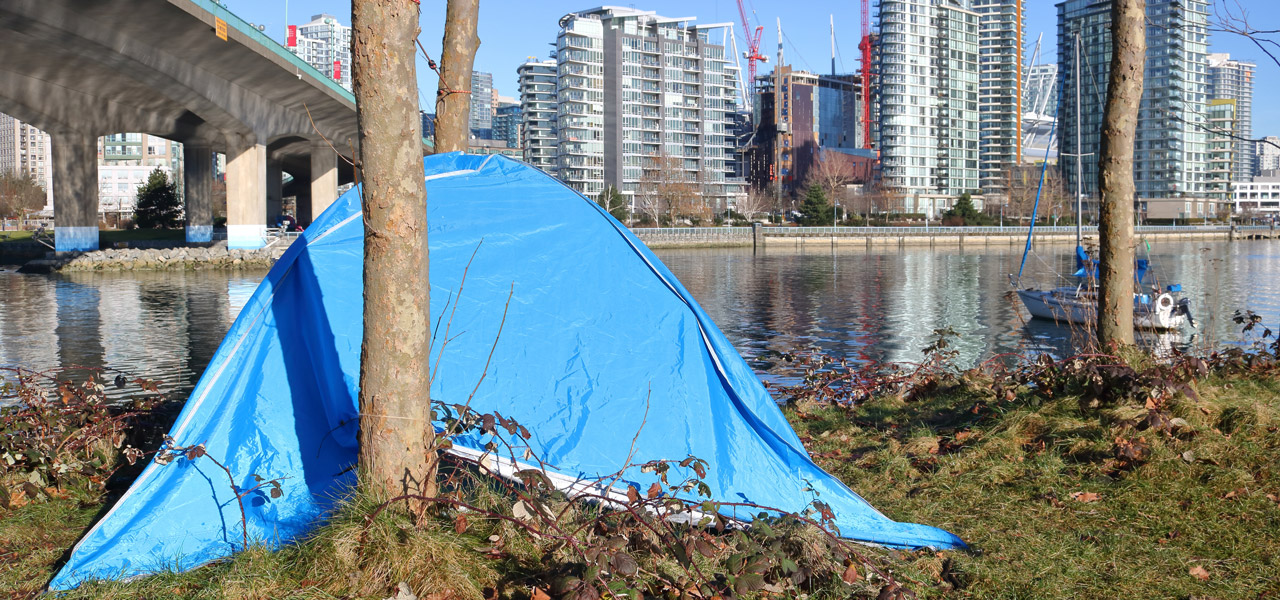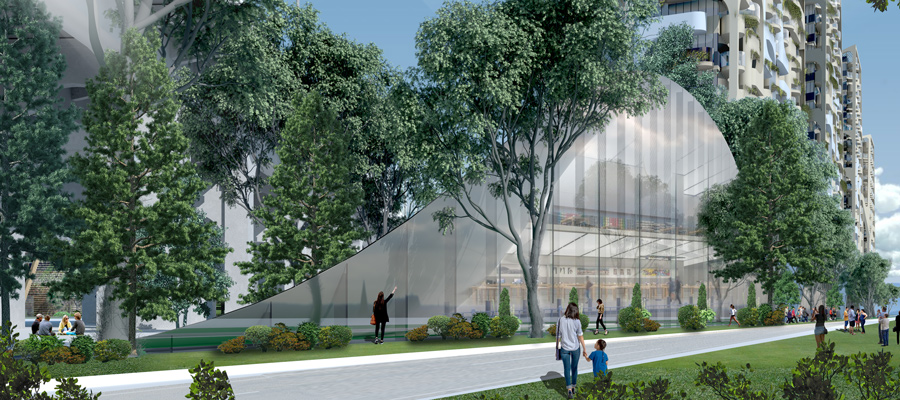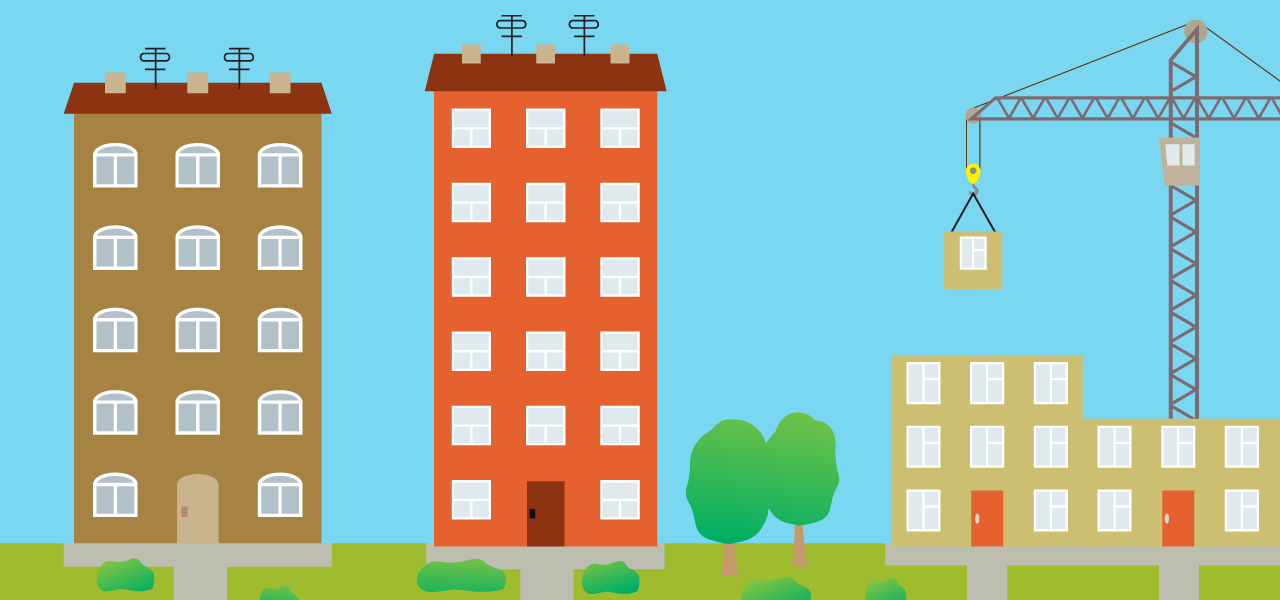Vancouver looks to more ambitious affordability proposals
When the previous BC government brought in a 15% foreign buyer tax in August 2016, Metro Vancouver’s housing market paused: real estate transactions dropped dramatically, prices fell at the high end of the market and housing starts slowed. By Spring 2017, however, the housing market rediscovered its animal spirits, and more recently we are back to bidding wars. Condos in particular have seen a major run-up in prices.
Housing in Metro Vancouver, including escalating rents, is as unaffordable as ever, a dynamic that threatens to undermine the city’s economy. The recent homelessness count of 3,605 people is the tip of a very large iceberg.
This post reviews and evaluates some recent developments and plans to address housing affordability, notably from the City of Vancouver.
The September budget update from the new BC government committed to building a total of 3,700 units (2,000 affordable rental and 1,700 modular units to house the homeless). This half-billion in new housing is much needed, but these amounts are spread over three to four years, and cover the entire province not just Metro Vancouver. Hopefully, February’s budget will deliver on a promised 114,000 new units over the next decade. And federally, we are still waiting to see if the long-promised National Housing Strategy contains substantial funding for a build-out of new affordable housing.
In the interim, the City of Vancouver—home of the most spectacular price increases and the tightest rental market—is in the spotlight. The municipal government tabled new measures to lean more forcefully into the affordability crisis with its Housing Reset. But a municipal by-election, coming October 14, is broadening the debate to include more aggressive housing affordability policies, such as a “mansions tax” and re-zoning of the city’s single-family housing areas.
Vancouver’s Housing Reset
The Housing Reset is currently in draft form but going to City Council for approval in November. Its most innovative aspect is to develop a more fine-grained matrix of targets to better match new housing supply to the incomes of the local population. Since City Council has the ability to approve new developments and re-zonings, it has the potential to compel final designs that include a greater share of affordable housing.
A shift in emphasis towards new rental housing is welcome. The City of Vancouver is already well ahead of neighbouring municipalities in using local tools and incentives to encourage more rental housing. However, Vancouver still needs to over-compensate for decades where condos dominated new supply. From a developer’s perspective, the incentives still lean towards building condos, not rental units (in Seattle, the opposite is the case).
The City estimates a target population of 54,800 people in severe housing need between 2017 and 2026, of which 24,500 are in need today—18,400 renter households are spending more than 50% of income on rent, 2,100 are homeless, and 4,000 live in in single-room occupancies (SROs) or otherwise inadequate conditions. Looking forward, another 30,300 will be pushed into housing need over the coming decade in the absence of policy action.
The Housing Reset’s most innovative aspect is to develop more fine-grained targets to match new housing supply to the incomes of the local population.
The Housing Reset envisions a total of 72,000 new units built over the coming decade, with some townhomes (5,000 units) and infill such as laneway housing (5,000 units) but mostly apartments and condos (62,000). Half of those units would be rentals, including 20,000 units of purpose-built rental and 12,000 units of supportive and social housing.
That said, the draft plan still requires senior governments to step up if targets are to be met. On its own the City says it can only meet 42% of the needed housing stock. About one-third of the proposed new units need “sustained senior government investment and partnerships” and another quarter of the total are based on “expected government and partner support.” The good news is that both the federal and provincial governments have flagged new affordable housing investments, although many details remain to be unveiled.
Calls for progressive property taxation
A by-election for a seat on Vancouver City Council has raised the prospect of more aggressive housing measures, in particular progressive property taxation to fund new affordable housing.
Downtown Eastside housing advocate Jean Swanson is running as an independent (with endorsement from the Coalition of Progressive Electors or COPE), and is calling for a “mansions tax” that would increase property taxes for those in homes worth $5 million or more. Homes between $5 and 10 million would pay an additional property tax of 1% of the assessed value over $5 million, and homes above $10 million an additional 2% of assessed value above that amount. Swanson estimates the tax would raise $174 million per year, all of which would go into building social and co-op housing and eliminating homelessness with a build-out of modular homes.
One City’s candidate for council, Judy Graves, previously a homelessness advocate for the city, makes a similar proposal as part of their housing affordability platform, calling for a 0.5% luxury property surtax on the top 5% of homes, and an additional 1% tax on the top 1% of homes (the thresholds are around $4 million and $7 million, respectively). They estimate such a property surtax would raise around half a billion dollars per year, which would go toward building 10,000 affordable rental units over five years.
In practice, the One City approach would need some modification to smooth the transition. A home just below the top 5% would pay no extra tax, as currently formulated, whereas a property just above that threshold would pay the extra tax on the full assessed value. Swanson’s proposal is more appropriately designed in that it applies only to value above the threshold.
A by-election for a seat on Vancouver City Council has raised the prospect of more aggressive housing measures, in particular progressive property taxation to fund new affordable housing.
A challenge with both proposals is that such a luxury tax would reduce property values at the top end. By how much is hard to estimate, but as a result revenues coming in are likely to be less than estimated. The number of affordable units that could be built would thus be proportionately less. A lower threshold, say $2 million of assessed value, would lead to much higher revenues that could be used to build affordable housing.
Quibbles aside, both of these proposals are on the right track, although they would require legislative changes from the BC government to become a reality. They echo my recommendation for a progressive property tax system that taps into the housing wealth of the city to fund new affordable units.
Another way to make the property tax system more progressive would be for the BC government to reform the Home Owner Grant (HOG). BC’s new government has promised a renter’s rebate of $400 per year, at a cost of about $200 million per year, essentially to level the playing field between renters and owners (who receive $570 per year deduction off of property taxes from the HOG).
Among competing demands heading into February’s BC Budget, there is a danger that this measure gets dropped due to cost. A way out of this impasse—and a better option—is to reformulate the HOG, which costs about $800 million per year, into a housing grant that would go to owner and renter households alike but would be linked to income. That is, it could be designed to provide greater help to low-income households, then phased out gradually as household income rises (as is the case for Old Age Security or the Canada Child Benefit).
Other big ideas for affordability
Each of the One City, Vision (Diego Cardona), NPA (Hector Bremner) and Green (Pete Fry) platforms weigh in on the need for Vancouver to re-zone and densify the vast single-family-zoned areas of the city.
Bremner calls for “zoning changes over larger zoning areas within the city that will allow flexibility to achieve greater residential density and diversity.” Fry emphasizes developing the “missing middle” of multi-family housing options, from townhomes and row houses to low-rise apartments. Cardona envisions a “2017 Vancouver Special” that would allow up to six units on a standard lot in single-family neighbourhoods.
In some parts of the city, variations on this type of redevelopment have been underway for decades. However, there is no guarantee that such development will be truly affordable for those in the greatest need. One City adds a push for new co-ops and affordable rental stock as the city is rezoned, calling for dedicated three- to six-storey rental units “across the city that are rented out at 30% of the tenants’ income and guaranteed as affordable.”
It has taken many years but everyone now seems to acknowledge that more supply, while necessary, is not sufficient to make housing more affordable.
Of the candidates for council, Jean Swanson is notable for making a radical pitch for an immediate four-year rent freeze. This too would require the provincial government’s blessing. But given many years of rents increasing well beyond inflation, a freeze is worth considering, in particular for those who do not live in purpose-built rental stock and are vulnerable to the whims of landlords.
The City’s Housing Reset rightly notes the need to retain existing affordable rental housing stock. However, it is thin on details as to how this would be achieved. Meanwhile, a lot of affordable rental stock in the form of three- to four-storey walk-ups is being demolished in favour of higher-density but more expensive housing units.
Closing thoughts
It has taken many years but everyone now seems to acknowledge that more supply, while necessary, is not sufficient to make housing more affordable. Housing is increasingly seen (by the wealthy) as a real estate investment rather than a place to live, and developers continue to maximize profits by selling luxury condos not affordable homes.
Researcher Andy Yan says about 8% of the city of Vancouver’s housing units were classified as “non-resident or empty” based on 2016 census data. But in areas with intensive condo development, including Joyce, Coal Harbour and Marine Gateway, that number jumped to 22–24% of housing units.
The City’s new Empty Homes Tax will hopefully make some difference, and push units onto the rental market. But we will have to wait until Spring 2018 before we have any useful data on the effectiveness of the new tax.
The bottom line is we need to build new, dedicated affordable housing. Municipal incentives can only get us so far, and that means getting substantial new housing stock is going to cost money. That is why the idea of a progressive property tax is so important. The BC government should watch the Vancouver by-election closely, and start on the legislative changes that would enable local governments to levy progressive property taxes.
Topics: Features, Housing & homelessness







